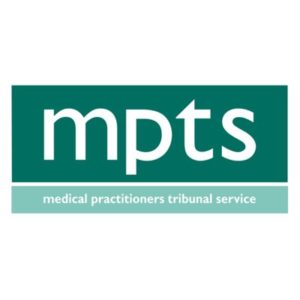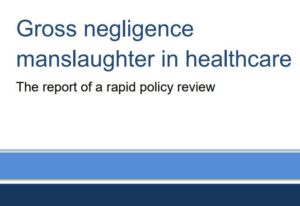Doctors in the Dock – appealing the Medical Practitioners Tribunal
Many in the medical profession have been up in arms following the recent High Court decision involving Dr Bawa-Garba (General Medical Council v Bawa-Garba [2018] EWHC 76 (Admin), overturning the decision of the Medical Practitioners Tribunal.
 The case had followed on from proceedings before the Medical Practitioners Tribunal which had ruled that Bawa-Garba should be suspended from practice for a period of one-year. That ruling was challenged by the General Medical Council, resulting in Bawa-Garba being erased from the medical register, which brought to an end her right to practice medicine.
The case had followed on from proceedings before the Medical Practitioners Tribunal which had ruled that Bawa-Garba should be suspended from practice for a period of one-year. That ruling was challenged by the General Medical Council, resulting in Bawa-Garba being erased from the medical register, which brought to an end her right to practice medicine.
The High Court observed that it reached ‘this conclusion with sadness but no real hesitation’.
Medical Practitioners Tribunal Decision Appealed
On appeal against this decision, the Court of Appeal has heard her removal for a “one-off mistake” had robbed the NHS of a “young and talented” doctor. The original decision to suspend rather than dismiss the doctor was argued to be “humane and balanced”, whereas the GMC have argued that “any other sanction undermined its rules and her manslaughter conviction.”
So, what is the background to this unhappy story?
In November 2015 Bawa-Garba was convicted at Nottingham Crown Court for an offence of manslaughter by gross negligence. She was sentenced to two years imprisonment, which was suspended.
This conviction came about due to her negligent care of a six-year-old boy, who died. An appeal against conviction in December 2016 failed.
In the later High Court proceedings, it was observed that ‘her failings on that day were “truly exceptionally bad” and that this must be reflected in the sanction.
So, why did the Medical Practitioners Tribunal (MPT) only order a suspension?
When the MPT heard the case, it had the benefit of hearing a substantial body of evidence about the pressures placed on Dr Bawa-Garba and the failings of others. In essence counsel for the GMC submitted that the Tribunal had in effect allowed evidence of systemic failings to undermine Dr Bawa-Garba’s personal culpability, and to do so even though those failings had been before the Crown Court which convicted her.
The Tribunal had therefore decided to find the Doctor less culpable than the jury had as a matter of law, and for that reason, the decision could not stand.
The High Court observed:
“The day brought its unexpected workload, and strains and stresses caused by IT failings, consultant absences and her return from maternity leave. But there was no suggestion that her training in diagnosis of sepsis, or in testing potential diagnoses had been deficient, or that she was unaware of her obligations to assess for herself shortcomings or rustiness in her skills, and to seek assistance.
There was no suggestion, unwelcome and stressful though the failings around her were, and with the workload she had that this was something she had not been trained to cope with or was something wholly out of the ordinary for a Year 6 trainee, not far off consultancy, to have to cope with, without making such serious errors. It was her failings which were truly exceptionally bad.”
A crowd-funding campaign to assist Dr Bawa-Garba was set up. One of the doctors behind the crowdfunding campaign, Dr Moosa Qureshi, said:
”There needs to be greater transparency as to why these decisions were made and who made them. Many of us feel that Dr Bawa-Garba was unfairly discriminated against and scapegoated for multiple system failings that could easily have happened to any of us in the current political crisis of the NHS. We want patients to be protected and for this doctors need to be able to look after patients without fear that they will be blamed or worse struck off when working in unsafe and dangerous conditions.’
So, many believe that Bawa-Garba has been made a scapegoat for systemic failings in the NHS.
In a further twist to this story, the previous Health Secretary Jeremy Hunt ordered a review into criminal manslaughter so far as it affects medical practitioners. The health secretary stated that clarity was needed about drawing the line between gross negligence and ordinary errors, and that ‘Doctors should learn from – not fear – mistakes.’
 The review, led by Sir Norman Williams (a former President of the Royal College of Surgeons), reported in June 2018. In the introduction to the report, Sir Norman wrote:
The review, led by Sir Norman Williams (a former President of the Royal College of Surgeons), reported in June 2018. In the introduction to the report, Sir Norman wrote:
“We hope our recommendations will change the environment by establishing a just culture and providing reassurance to healthcare professionals, patients and their families that gross negligence manslaughter cases will be dealt with in a fair and compassionate
manner.”
The full report can be found here.
By any measure this is a sad case for all concerned and criminal practitioners will be keeping a watchful eye on the outcome of the Court of Appeal case.
Contact a crime and regulatory law specialist

If you are a professional person facing criminal proceedings then please contact our criminal and regulatory partner Martin Hadley immediately.
Martin will be able to provide free and independent legal advice in police interview.
If charged, we will provided affordable representation before either the Magistrates’ or Crown Court, and be able to provide advice with an eye to any future potential disciplinary proceedings such as those before the Medical Practitioners Tribunal.

